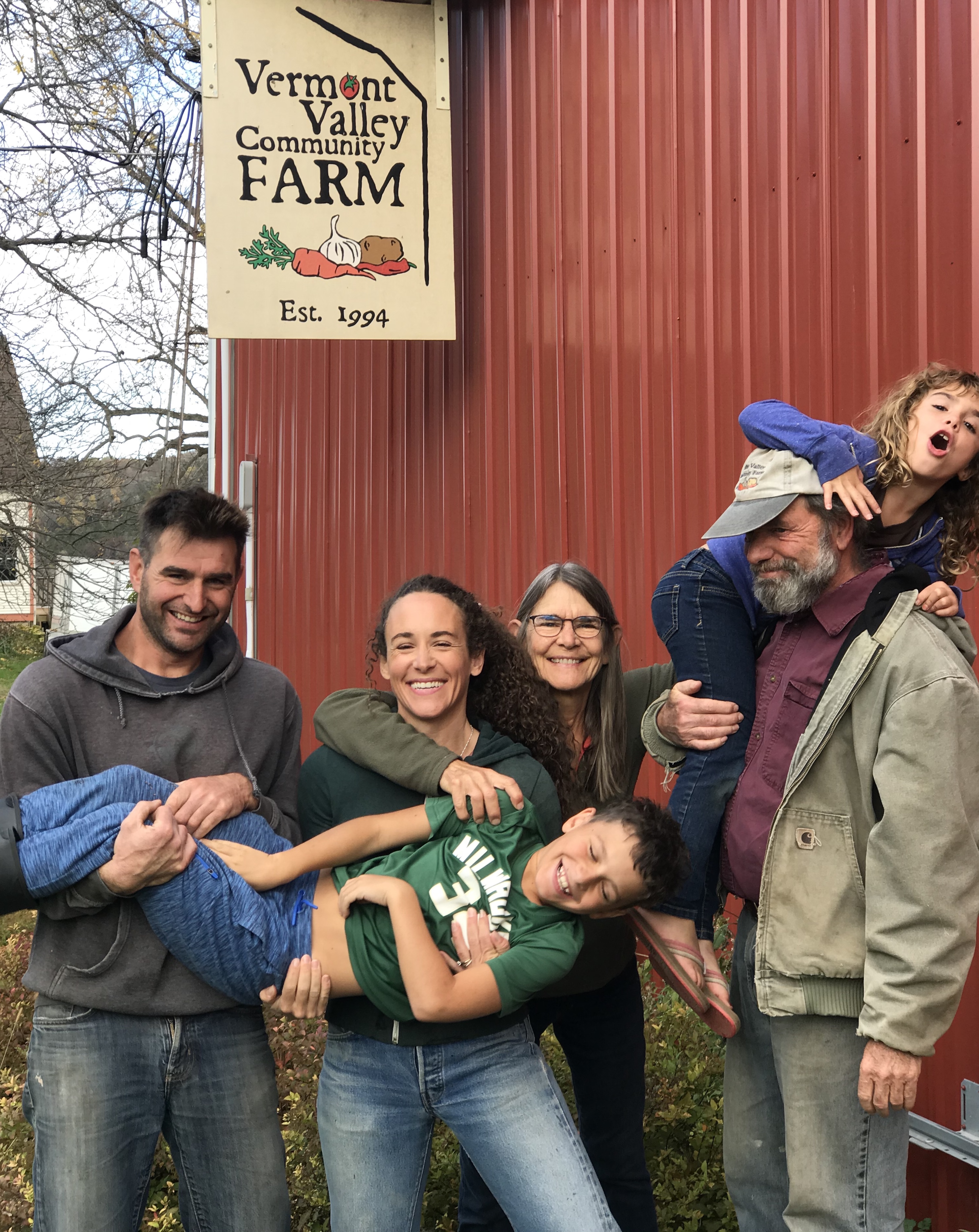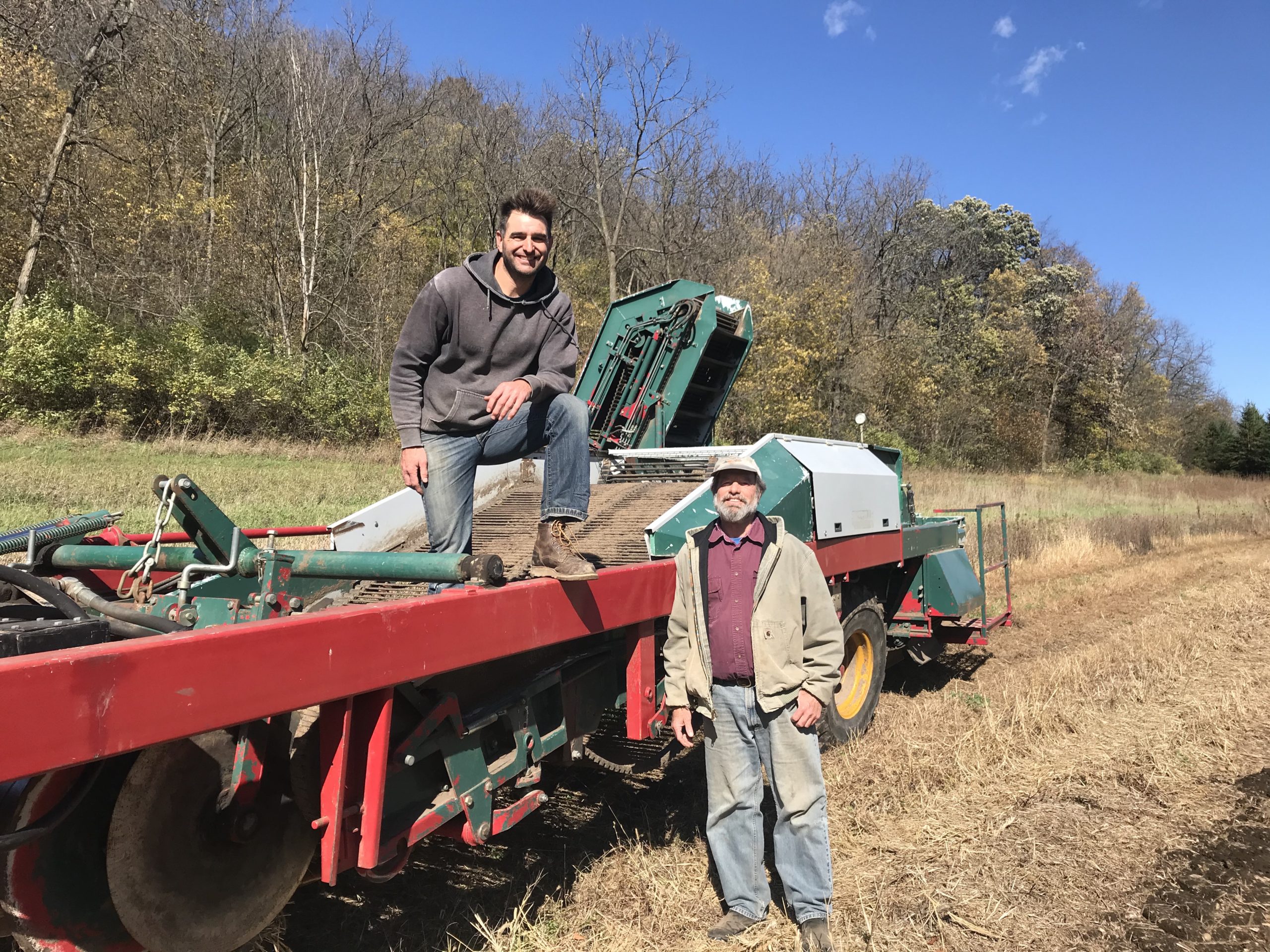
Nov 20, 2020
Vermont Valley Farm finds a niche in supplying organic seed potatoes
Small, organic farms need organic seed potatoes, and a small, organic farm in Wisconsin has found its niche in supplying those farms.
The Vermont Valley Community Farm was started by David and Barb Perkins, and it’s run now by their son, Jesse, but you could almost say the soil is like a strong, but silent, third partner. Potatoes take a lot out of the soil, so the strength of the soil is important. And in seed potatoes the importance of a healthy crop is paramount, so the health of the soil is also important.
Proprietor Jesse Perkins said his customers usually grow a quarter acre or more of organic potatoes. They range from community-supported agriculture (CSA) farms and farm marketers to even home gardeners.
“There are large, organic potato farms – we don’t sell to those,” he said. But the smaller-scale, self-contained process appeals to a lot of customers.
“It’s basically just selling a very high-quality process,” Perkins said.
Building up
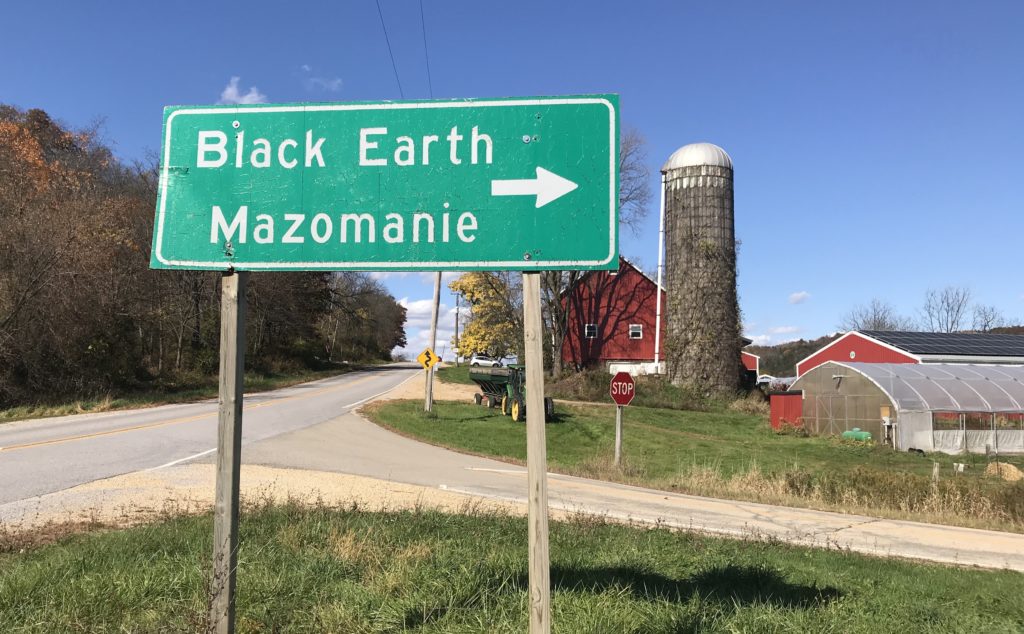
Vermont Valley Community Farm is nestled in the driftless region of Southeast Wisconsin, which features steep hills with shallow topsoil, and valleys with silt loam soils. Much of the area’s potatoes are grown in the sandy loam of the Wisconsin River Valley.
David and Barb started the farm as a CSA in 1994, growing produce for the surrounding area. At one point, the CSA sold 1,300 boxes a week, Jesse Perkins said. They got into seed potatoes about 11 years later and have continued since that time. Two years ago, Jesse decided to scale down operations to concentrate on the seed potatoes as well as devoting more time to his young family.
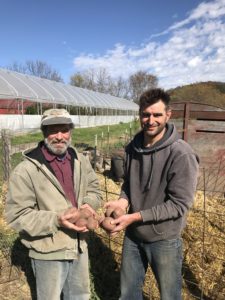
As a CSA, they were farming about 20 acres of vegetables and 10 acres of potatoes, he said. Last year was the first year they didn’t run the CSA, and grew about nine acres of the potatoes.
David, who has an agronomy degree, is still the resident expert on soil, and as president of the Midwest Organic and Sustainable Education Service (MOSES), is very dedicated to organic soil building.
“In organic production, nothing is put into the soil to kill organisms; rather we encourage a healthy biology in the soil,” he said. “Through a healthy living soil, our goal is to manage unwanted organisms reducing their impact to a tolerable level. Our soil health strategy relies on cover cropping and rotations.”
His choice of cover crops has been based on soil types, goals and rotations.
“Cover crops have primarily been legumes (clovers, alfalfa, peas,) and grasses (winter rye, oats),” he said.
“Soil amendments are used to supplement fertility needs of specific crops, and for potatoes that is very significant; including mineral sources of potassium, phosphorus, calcium and sulfur; and meal nitrogen sources such as cottonseed and soybean meal.”
Healthy soil, healthy seed
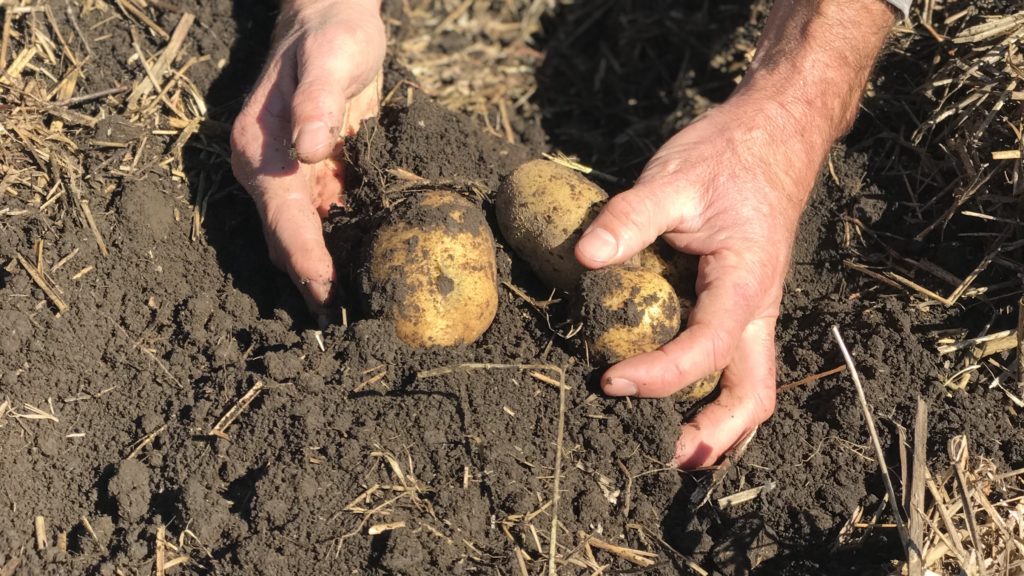
The high-quality process is what sells the seed potatoes, as Jesse said, so a lot of work goes into making sure the potatoes are clean and healthy.
Foundation-level seed stock comes from the Wisconsin seed potato program, which for each variety propagates genetically-identical plantlets through tissue culture, and grows mini-tubers from those plants under hoop houses, Jesse said. The first- or second-generation mini-tubers they plant are guaranteed to be free of any viruses.
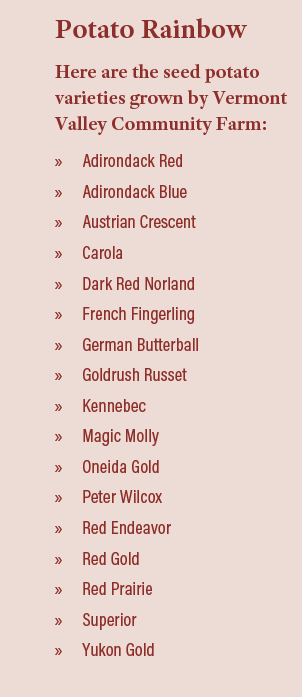 “We grow it out just like you would a regular potato,” Jesse said. “During the season we have two field inspections. The inspectors come down, walk the field and look for any diseases or issues in the fields just to make sure it’s growing well in the field. And then, they do a pit inspection in the fall, come down and look at everything in stores to make sure our harvest looks good. And then we also send out 400 samples of every variety that they grow out (in Hawaii or Florida). Any diseases they couldn’t see in the field will show up if they’re there.”
“We grow it out just like you would a regular potato,” Jesse said. “During the season we have two field inspections. The inspectors come down, walk the field and look for any diseases or issues in the fields just to make sure it’s growing well in the field. And then, they do a pit inspection in the fall, come down and look at everything in stores to make sure our harvest looks good. And then we also send out 400 samples of every variety that they grow out (in Hawaii or Florida). Any diseases they couldn’t see in the field will show up if they’re there.”
Disease problems can disqualify the seed potatoes from being sold in the spring. And all of those inspections are in addition to the organic certification paperwork and inspections.
An effort is made to keep the soil healthy. Although David doesn’t add much to the soil, he includes cottonseed meal that “also temporarily reduces soil pH assisting with pathogen management,” David said. “A healthy soil together with fertility and water management creates a robust plant; all this in combination is our soil pathogen management.”
As far as plant health above ground goes, “It seems like there are always things that want to kill potatoes,” Jesse said. Late blight is a “bogeyman,” a worst-case scenario that’s never actually hit the farm but could wipe out the crop if it does, he said.
Early blight comes every year and is considered a simple yield reducer.
The Colorado Potato Beetle is an issue, but Jesse said he’s been able to control those with carefully-timed applications of Entrust, a spinosad product from Corteva that’s listed by the Organic Materials Review Institute (OMRI) for use in organic production.
“If you mis-time it by even a couple days (the beetle problem) could be really bad,” he said. The trick has been to kill off as many beetles as possible in one spray of Entrust after the first hatch, but before they do too much damage. “I really want to spray as little as possible.”
Leafhoppers at the end of the season in the bulking bay are a problem that the farm continues to work on.
Customer care, self-care
Vermont Valley Community Farm grows 17 different potato varieties – Jesse’s favorite is Peter Wilcox, a potato with purple skin and gold flesh.
While the businesses’ core customers grow a quarter-acre or more, Jesse has an interest in growing the client list to include home gardeners.
Because Vermont Valley Community Farm doesn’t resell any third-party products, quality is the selling point, and so Jesse is very controlling of the quality, and the quality of the customer service.
“I’m the sales, I’m the shipping, I’m the marketing,” he said. “I know the whole process.”
While stopping the CSA farm two years ago was a big decision, Jesse thinks it was the right one. His parents had worked at the job for 24 years, before retiring, and while Jesse had done it full-time for 13-14 years, it was time for a change. CSA farming is “a great market and a great system,” he said, but it does tend to dominate one’s life from March to November each year.
“The vegetables have to be the most important thing in your life,” Jesse said. “I have two little kids, and I wasn’t willing to prioritize vegetables over my two kids, is what it came down to. The potatoes were something we could keep doing.”
